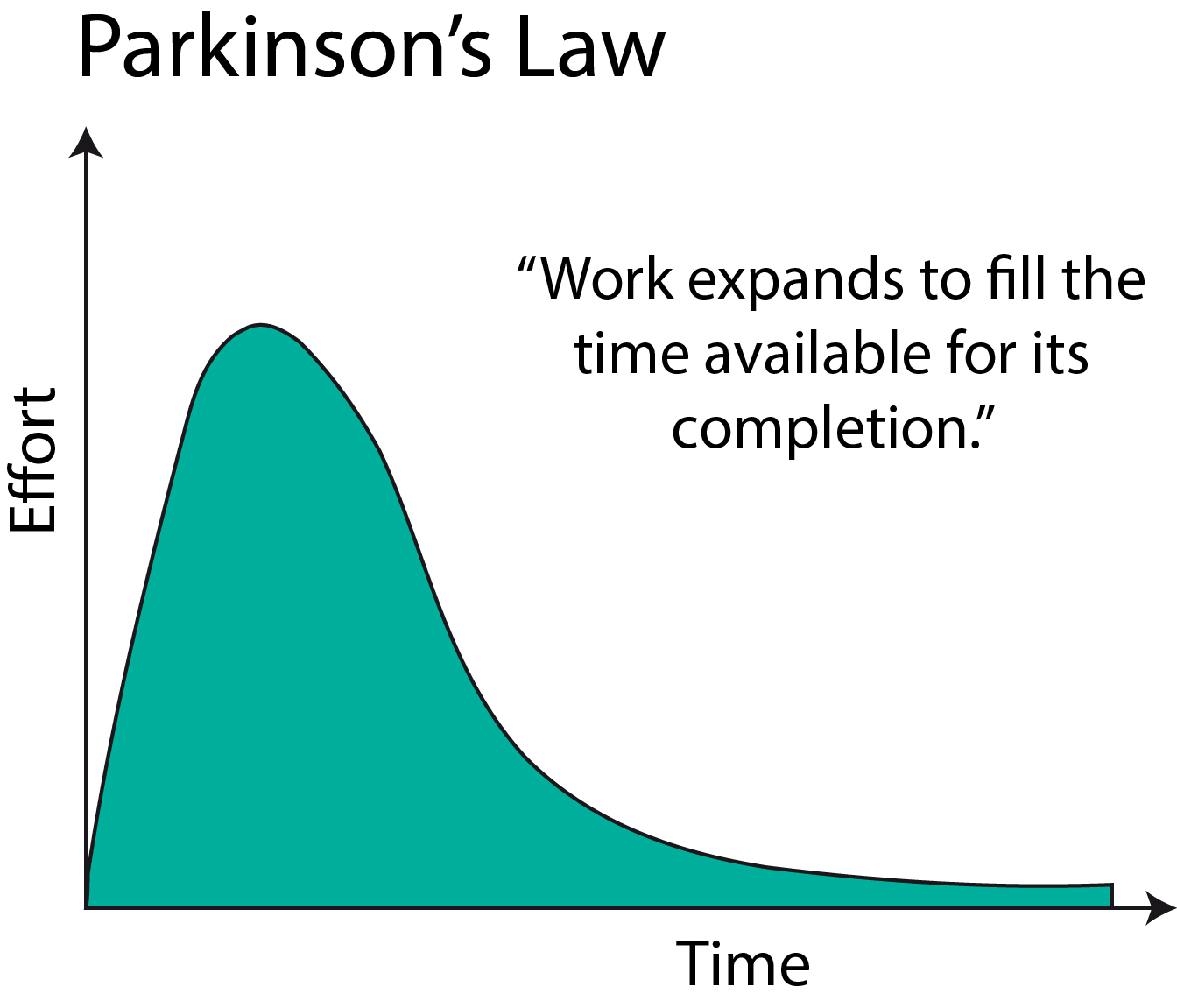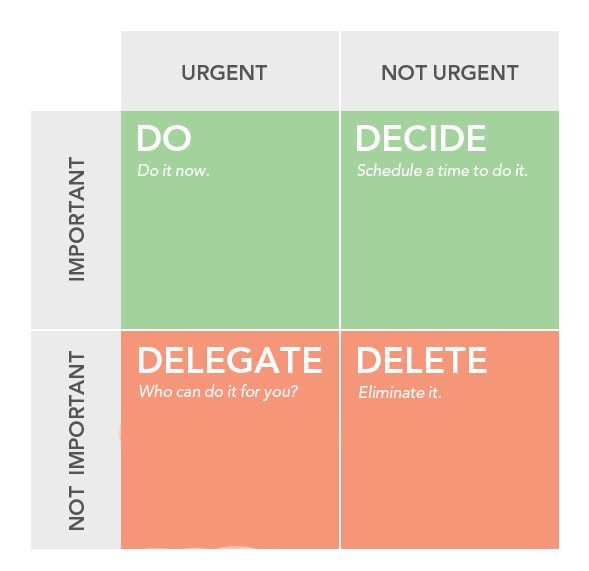
Mind Your Head is a blog series dedicated towards addressing mental health in the academic environment and highlighting solutions relieving stress in daily academic life.
An important struggle of people working in academia is how to complete all the different tasks in the limited time available. Even though time management is important for almost any type of career, the degree of freedom in academia and therefore the expected independence make good time management skills a necessity.
In this blog I discuss some highlights of the tips and advice I collected from various senior scientists and time management consultants. I divided them into these five sub-topics, which will hopefully help you in knowing what your goals are and which steps you can take to reach those goals in an efficient way.
Research strategy
The first step is to have a well thought-out research strategy. At the beginning of a PhD or post-doc project, the specific topic and research strategy is defined by you and your advisors or collaborators. It usually includes a pre-determined balance in terms of certain successes (i.e. known research paths that will certainly lead to publications) and innovative research (with some degree of risk).
However, such a pre-determined strategy does not mean that there is no change possible; it simply means that you have something to hold on to. This initial long-term plan is simply a guide through the forest of different research paths, but these strategies are never set in stone. It is important to keep in mind what the final goal of your work is and to periodically evaluate if this goal is still realistic.
Many side-paths will present themselves along the way and it is up to you to decide whether to take them or not. To help you make decisions like that, you have your colleagues and supervisors for discussions and advice, and sometimes you can do a small, quick test to see whether a side-path shows potential or not.
How to sub-divide
Then, there are different sub-projects in any long-term project. These could be different methods you use, like fieldwork, experiments or models, or maybe long-term vs. short term projects. You need to find a way of managing and keeping track of these multiple research lines.
The further along in your career, the more multi-tasking becomes part of the job. Try to find what works best for you: if you feel that it is better to finish one project first, before taking on the next step or method, than definitely do so. Another method is to create specific time blocks (during the week, or month), to which you assign your different tasks. There are numerous time-management apps, as well as old-fashioned paper calendars and notebooks to help you to keep track of things.
Decrease your stress levels by spending some time on thinking about how to efficiently subdivide your work and how to be in control; it doesn’t help if you are overwhelmed because you try to work on four different sub-projects simultaneously. And, especially in research, things often take more time than you would like, and then it is up to you to adjust the plan. Remember Murphy’s law: “ In general, things take longer than expected, because we often underestimate the difficulty of tasks, especially when they are new.”.

In order to be productive, make sure you assign the right amount of time to a task. Not too little, but not too much either. For more about Parkinson’s law, check out this article. Picture credit: Elenora van Rijsingen
Set priorities – and learn how to say no!
Have you ever heard of the Eisenhower matrix? By making the difference between urgent and important tasks, Eisenhower summarizes how to optimize the different tasks that you have in a job (or in life!). Urgent tasks are the ones that come with an approaching deadline, while important tasks are the ones that are useful for both your professional and personal development. This Eisenhower matrix is a tool that can help you decide which tasks of your to-do lists come first.
The first group consists of tasks that are both important and urgent (like finishing the revision of your article, or preparing a conference talk). These fall into two different categories: tasks that you could not have foreseen, and things you left yourself until the last minute. The first thing to do is to minimize the things in the second category, so your list of important and urgent tasks becomes shorter. Think about how you can manage your time better, which tasks you could have foreseen, so that not all your activities become urgent. This means you keep track of your deadlines!
The second group are the not-urgent, but important things (like reading articles to increase your knowledge or going to the gym in the evening). You might have the tendency to put these activities aside, because you always have more urgent things to do, but don’t forget that these tasks are important for a reason!
Then there are the urgent, but not so important tasks (like booking flights for your upcoming conferences or mandatory bureaucracy for the university). For some people, half their day consists of these tasks, which probably does not make them very happy. If possible, try to find a way to reduce the amount of time you spend on those tasks. Maybe you can delegate them? Also, many favours you do for other people belong in this group. Is there the possibility to say no, when someone asks you to do something? If so, do it, but politely. Maybe you can find another moment which is more convenient for you, or you can suggest someone else who would be more suitable for the job.
And what about the not-urgent and not-important tasks? Well, according to Eisenhower you should just eliminate them. There is no faster way to complete a task than not doing it at all.

The Eisenhower Matrix. Credit: James Clear
Work organized
This one seems obvious, but it’s importance is easily underestimated. Do you recognize that feeling when you quickly saved a file somewhere on your computer, but a few weeks later you have no idea where it went?
Organizing things like your computer, your email inbox, your desk, the lab and even your calendar might take some time, but it is definitely worth it. For example, if you organise your calendar in such a way that you can work on a task without (too many) interruptions, you will be much more efficient. Turning off the sound of your phone and your email notifications (and pop-ups) can already be very effective in reducing the amount of distraction during your work.
Also, keeping track of what you have done and which decisions you have made regarding your analyses or your models will be very useful if you do interrupt your task for several days (or months!). This all helps you to keep control, and increase your efficiency – and therefore decrease stress and frustration!
“An interrupted task will be less efficient and take longer than if it would have been carried out continuously”- Carlson’s Law
Do what you like
One of the most important pieces of advice I received was that I should do what I feel like doing in a particular moment. This means that if you feel like reading papers all day and making notes about things relevant for your work, you should do it!
You will be much more productive if you are actually in the mood, rather than pushing yourself to do something, simply because you feel like you should. Even though the degree of freedom in science is quite large, this strategy does not always work. Often there are deadlines and sometimes things simply must be done (i.e. the urgent things). If you make sure your list of Urgent & Important things is short at all times, there is the most opportunity to do such things.
So, to maximize the ‘do-what-you-feel-like-strategy’, it is necessary to think ahead. For example, start thinking about that poster a few weeks in advance, so that you can already create some figures when you have the time… and when you are in the mood!
By Elenora van Rijsingen
Written with help and revisions from Anne Pluymakers
Resources
2nd workshop of the Marie Skodowska-Curie ITN project CREEP: Discussion sessions between senior- and early career scientists focused on reducing stress levels in academia.
PhD management training by Marie-Laure Parmentier from Belpaeme Conseil, France.
‘How to be more productive and eliminate time wasting activities by using the Eisenhower Box’, by James Clear.




